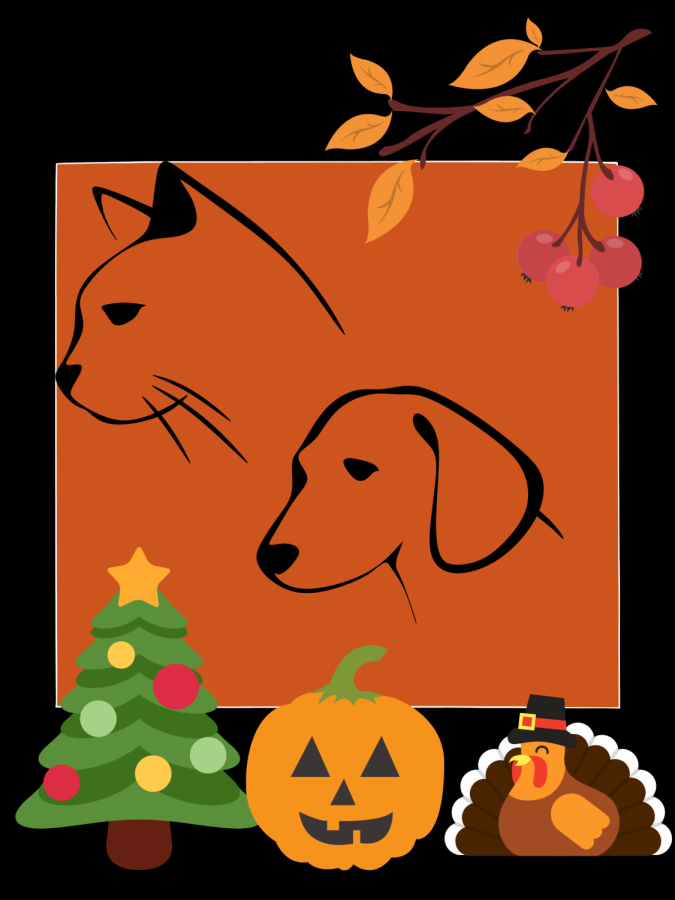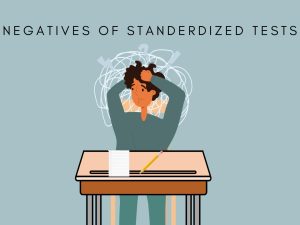Holiday warnings to keep your pets safe
November 17, 2021
Everyone will agree that the holiday season is one of the most magical times of the year, but what isn’t magical is bringing your pet to the hospital. At the end of the year, there are many occasions with gatherings and food that may present safety hazards for your furry friends.
Having kids knocking on your door all night on Halloween isn’t as fun as it may seem. Seeing all of the kids in cute costumes is the first thing you think of, but that’s not what your cat or dog thinks. Even though Halloween is over, the next few months will also follow with many extra visitors and delivery drivers. Animals can become anxious when they see things that scare them. There is no way to sense your animal is becoming anxious besides seeing them do one of these things: urinate or defecate, bark or, howl, chew/destroy things, dig, try to escape, pace and attempt to prevent you from leaving.
To help your animal, keep them in a room with you when you go to open the door. Keep them away from the candy or keep the candy or other sweet treats. Holiday parties could also lead to your animal having stress. If you plan to throw one, make sure your furry friend is in a room by itself unless you know it loves a good party!
When Thanksgiving dinner starts cooking, your animal is at risk. Some foods to watch out for are turkey bones, skin, and gravy, stuffing, casseroles, mashed potatoes, creamed peas,
chocolate, cookies, pies and sweets (especially anything containing xylitol), alcoholic beverages, and raisins and grapes. If your animal ate a bone, regardless of the size, bring them to a veterinarian immediately.
Hanging ornaments on your tree is a fun family activity, but what you need to look out for is your animal friend stealing food or plants when you aren’t looking. During the holiday season amaryllis, azaleas, chrysanthemums, evergreens, holly, ivy, juniper, lily, and mistletoe are very popular–but what you might not know is that all of these plants are all extremely poisonous to animals if ingested. Dogs who have consumed a poisonous plant will display signs such as nervousness, muscle tremors, excessive sweating, seizures, weakness, breathing complications, increased heart rate, stomach upset, vomiting, diarrhea and coma.
When figuring out where to put the Christmas tree, you should keep in mind that Christmas trees can be very flammable next to the fireplace–if your animal likes playing with the tree, I would take caution and hook it up with a fishing line. Similarly, the candles on a menorah should be at safe distance from pets.
Throughout the year, there are an abundance of cautions that any pet owner should be taking to protect their animals–however, the holidays can multiply the dangers tenfold. By using the methods outlined in this article, you can prevent yourself from spending the holidays with your local veterinarian.









